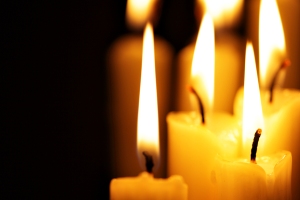 It is during this time—the traditional season of giving and celebrating the approaching New Year—that many people give hope and assistance to those in need. In the wake of last Friday’s tragic shooting deaths, we now also face a time of mourning the loss of the women and children in Newtown, CT. This event has left many of us in this country and around the world heartbroken as we share the sorrow of the victims, their families and affected communities.
It is during this time—the traditional season of giving and celebrating the approaching New Year—that many people give hope and assistance to those in need. In the wake of last Friday’s tragic shooting deaths, we now also face a time of mourning the loss of the women and children in Newtown, CT. This event has left many of us in this country and around the world heartbroken as we share the sorrow of the victims, their families and affected communities.
Many people are still grappling with the horror of the news and are understandably focused on ensuring their own children’s safety and wellbeing. Some are choosing to mourn the victims and support their families through signing sympathy cards, participating in public memorials, or making donations to individual funds set up by the victims’ families. At the same time, the mainstream media is providing a steady stream of suggestions of how people can help (e.g. USA Today, ABC, and CNN).
As always, our team’s focus is on providing donor guidance informed by the best available evidence we can access. The following is a short list of nonprofits whose work and programs are consistent with what we know to be effective in addressing the immediate needs of those directly impacted by the kind of traumatic violence experienced by the children and families in Newtown:
- Red Cross has deployed over 150 mental health professionals and grief counselors to address the mental health needs of those affected. With its specific expertise in providing care to those in sudden need due to crisis or disaster, the organization serves as a key first responder.
- Save the Children has created a Child Friendly Space so children have a safe place to play and express themselves. As we discussed in our analysis of the IRC’s healing classrooms, creating child-friendly places that serve as oases of normalcy for children who have experienced trauma can be critical for children’s healing. Such spaces also provide important support to adults who must attend to other matters, but remain concerned about their children’s welfare.
- National Center for School Crisis & Bereavement was founded shortly after 9/11 and is a resource recommended by the American Academy of Pediatrics. Its work includes technical assistance to schools and agencies, bereavement guidelines on how to address recovery issues such as planning for anniversaries, and the development of teacher training and curriculum related to handling loss. This last resource can be especially helpful since evidence points to the powerful role teachers can play when they have been equipped to handle the psychological needs that result from students’ exposure to loss. Learn how healing classrooms put teachers and students on the road to recovery.
In addition, donors who wish to help can consider contributing to the Sandy Hook School Support Fund which has been set up by the United Way of Western Connecticut to channel donations to those who have been directly impacted.
Beyond the immediate needs of survivors, there are important mid and longer-term issues that donors can help address, including individual mental health issues, community mental health needs, post-traumatic stress, and school and gun violence. As members of the School of Social Policy & Practice , we count as colleagues a broad network of clinicians, nonprofit practitioners, faculty, and researchers with expertise and experience addressing these issues. In the coming weeks, even as the mainstream media attention may fade, our team will continue to monitor the situation and provide updated guidance as appropriate.
Due to the upcoming University break, our Center will be closed starting Friday, December 21, 2012 and will reopen Wednesday, January 2nd, 2013. In the meantime, our thoughts and prayers are with all of those affected by the tragic deaths in Newtown. May the new year bring peace and comfort to all.
